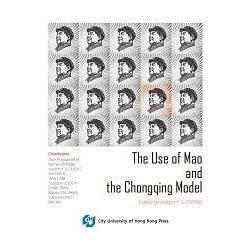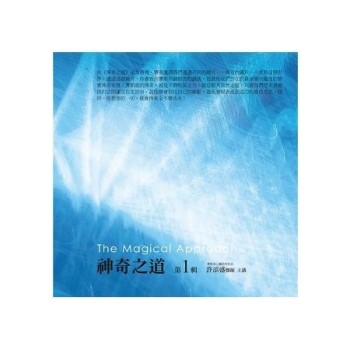| FindBook |
有 4 項符合
The Use of Mao and the Chongqing Model的圖書 |
 |
The Use of Mao and the Chongqing Model 作者:Joseph Y.S. CHENG 出版社:香港城市大學 出版日期:2015-07-01 語言:英文 規格:平裝 / 331頁 / 15.2 x 22.9 cm / 普通級/ 單色印刷 / 初版 |
| 圖書選購 |
| 型式 | 價格 | 供應商 | 所屬目錄 | $ 869 |
社會人文 |
$ 1023 |
文化研究 |
$ 1023 |
文化研究 |
$ 1045 |
政治學理論/經典著作 |
|---|
| 圖書館借閱 |
| 國家圖書館 | 全國圖書書目資訊網 | 國立公共資訊圖書館 | 電子書服務平台 | MetaCat 跨館整合查詢 |
| 臺北市立圖書館 | 新北市立圖書館 | 基隆市公共圖書館 | 桃園市立圖書館 | 新竹縣公共圖書館 |
| 苗栗縣立圖書館 | 臺中市立圖書館 | 彰化縣公共圖書館 | 南投縣文化局 | 雲林縣公共圖書館 |
| 嘉義縣圖書館 | 臺南市立圖書館 | 高雄市立圖書館 | 屏東縣公共圖書館 | 宜蘭縣公共圖書館 |
| 花蓮縣文化局 | 臺東縣文化處 |
|
|
MAO Zedong was a Chinese communist leader and founder of the People's Republic of China. He developed his own ideology and methodology known as Maoism or Mao Zedong Thought, and his thought has a great influence in China or even overseas.This book aims at bringing together a group of scholars to address the uses of Mao in China (PRC) today with special reference to the Bo Xilai case. It also provides insights and detail on how and what we know about modern China. Contributing authors, including a number of French scholars, illustrate how Maoism influence and engages in government, business sector or social life.
|This timely volume will be of considerable interest to scholars, journalists, and those keen to better understand the changing values in China today.
作者簡介:
Chair Professor of Political Science
Department of Public Policy,
City University of Hong Kong
—Joseph Y. S. CHENG
2. Mao Zedong in Contemporary Chinese Official Discourse and History
—Arif DIRLIK
3. Business, Protest, Repression —The Eclectic Uses of Mao in Contemporary China
—Jean-Philippe BÉJA
4. The Maoist Revival and the Conservative Turn in Chinese Politics
—Willy LAM
5. Repackaging Mao in Times of Uncertaint
—Ben XU
6. The Mao Generation at the Helm — What Difference Could It Make? Will They Still Make Use of Mao, and How?
—Michel BONNIN
7. Ma...
- 出版社: 香港城市大學出版社 出版日期:2015-07-01 ISBN/ISSN:9789629372408
- 語言:繁體中文 裝訂方式:平裝 頁數:331頁 開數:18開
- 商品尺寸:長:229mm \ 寬:152mm
- 類別: 中文書> 社會科學> 文化研究
|








![114年一書搞定機械力學概要[國民營事業] 114年一書搞定機械力學概要[國民營事業]](https://media.taaze.tw/showLargeImage.html?sc=14100121141)


